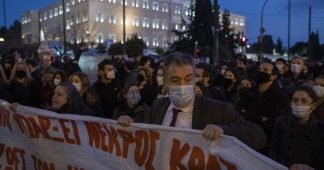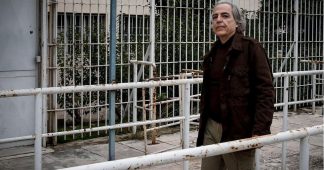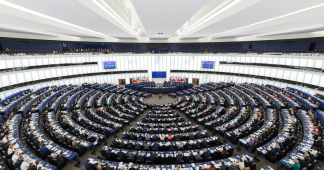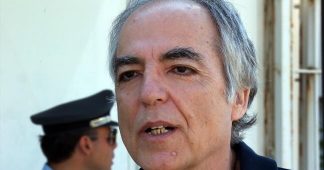Bhavi Mandalia
March 2, 2021
Athens (Greece), correspondence.
Every hour brings him closer to death. After a fifty-five day hunger strike, Dimitris Koufontinas is in a critical state of health. Placed in intensive care at Lamia hospital, in the center of the country, the detainee refuses to eat and drink. On a drip, he could become the first prisoner to die from a hunger strike in Greece. Sentenced eleven times to life imprisonment in 2003, for terrorism and assassinations within the revolutionary group of November 17 (17 N), Dimitris Koufontinas had been serving his sentence for two years in the rural prison of Volos.
But, in December 2020, the conservative government of New Democracy passed a law prohibiting those convicted of terrorism from serving their sentence in this type of establishment. “This law, which is similar to a targeted provision because Dimitris Koufontinas was the only prisoner in this case, stipulates that the detainee must be returned to the original penitentiary center”, decrypts Anastassia Tsoukala, jurist criminologist.
” Revenge “
Koufontinas will not see Korydallos, in the suburbs of Athens, where he spent his first 16 years in detention. He was transferred to Domokas high security prison and began a hunger strike on January 8, the fifth since the start of his detention. “There is a triple responsibility of the state: a targeted law, a violation of this same law, then a deprivation of the rights of the detainee”, summarizes Anastassia Tsoukala.
The authorities cite health and security reasons, but Dimitris Koufontinas’ lawyer, Ioanna Kourtovik, denounces Humanity “Personalized and targeted management, and a series of illegal actions against his person”. The 63-year-old is the latest member of the 17 N to take responsibility for a group that committed 23 murders and around 100 attacks between 1975 and 2002.
The politico-judicial affair takes on a personal connotation to the top of the state which rubs off on the treatment of the detainee, believes Ioanna Kourtovik. Among the victims of the 17 N, figure Pavlos Bakoyannis, deputy of New Democracy, but also brother-in-law of the current Prime Minister, Kyriakos Mitsotakis, and father of the current mayor of Athens, Kostas Bakoyannis.
“There is revenge against the prisoner coming directly from the government”, castigates Dimitris Koufontinas’ lawyer. “The rule of law is shattered”, warns lawyer Anastassia Tsoukala. For Giannis Kouzis, Dean of the Faculty of Political Science at Panteion University in Athens, “We must not neglect the political strategy of the government. The deterioration of the situation could provoke violence which would serve as a justification for the implementation of new security measures ”.
“Silence as the only answer”
Since its election in July 2019, the Conservative government has continued to pursue an authoritarian policy. “There is a parallel between the current government and the period of dictatorship in terms of repression and human rights”, judge the academic. Despite different political sensitivities, several tenors of the Athens Bar succeeded each other to call on the state to respect the rights of the detainee. All the left-wing opposition parties, from Syriza to the Greek Communist Party (KKE), are calling on the government. Petitions from academics and lawyers are multiplying and the President of the Hellenic Republic has been personally solicited. “Silence as the only answer”, laments Ioanna Kourtovik.
Rallies in Athens have gained momentum in recent days. Thousands of people marched on March 1 in the capital and new mobilisations are expected in the coming days. In parallel, thousands of users on Facebook have also challenged the President of the Republic, Katerina Sakellaropoulou, while several journalists saw their accounts blocked after having published texts and photos on the subject
Published at pledgetimes.com









